How Many Chickens Do I Need?
If you are ready to start raising chickens but you’re not sure how many to get, I hope today’s article helps. Find out the answer to How Many Chickens Do I Need so you get the right amount for your family and home.
Raising chickens that are healthy and happy is our goal, so let’s start at the beginning!
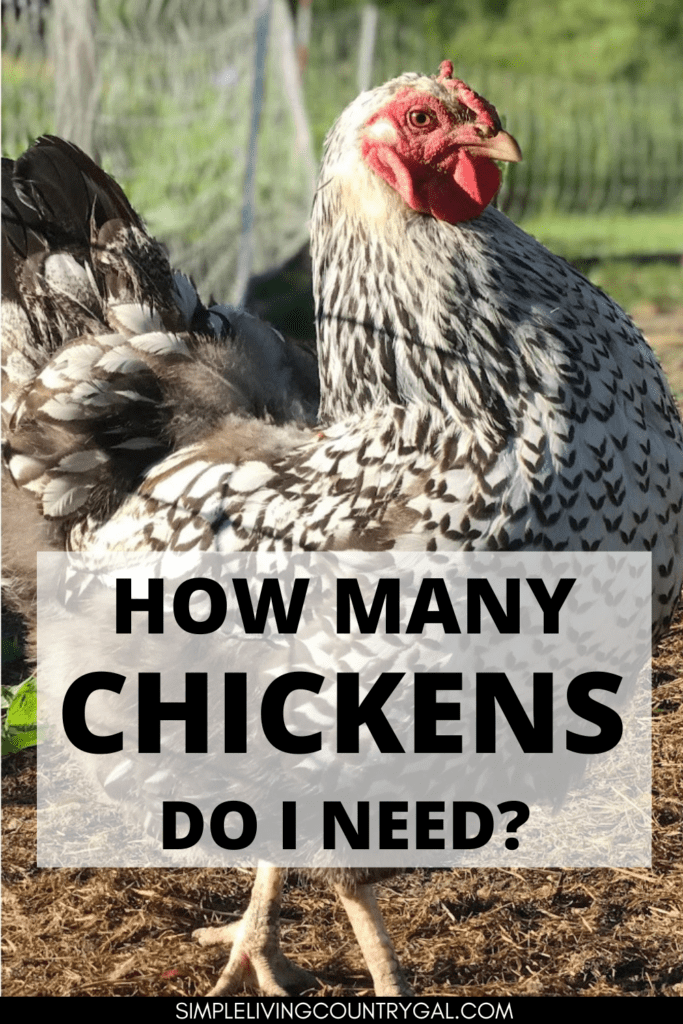
There is nothing I love more than enjoying food from my own backyard.
And maybe that is why I love raising chickens so much. It allows you to have delicious eggs at the ready whenever you need them. Eggs from your own chickens will not only taste better than store-bought eggs, but they’re also better for baking and have amazingly golden yolks that put the pale store-bought egg yolks to shame.
Then there’s the chicken poop and discarded egg shells. Both of which make great compost for your garden. Compost that you can use to improve the soil of your vegetable garden allowing you to grow even more fresh organic food.
Finally, chickens will help to keep pests and insects to a minimum especially if you allow them to free range throughout the day.
Things to Consider Before Getting Chickens
There are so many reasons to consider raising a few chickens in your backyard. But before you start building your chicken coop, there are a few things to consider.
First and foremost, you need to check your local ordinances including county rules and any Homeowner’s Association rules if you have one. Some areas don’t allow chickens and others enforce a limit on how many hens you can keep.
You don’t want to spend time and money getting your coop set up and bringing your baby chicks home only to find out you may have to get rid of them.
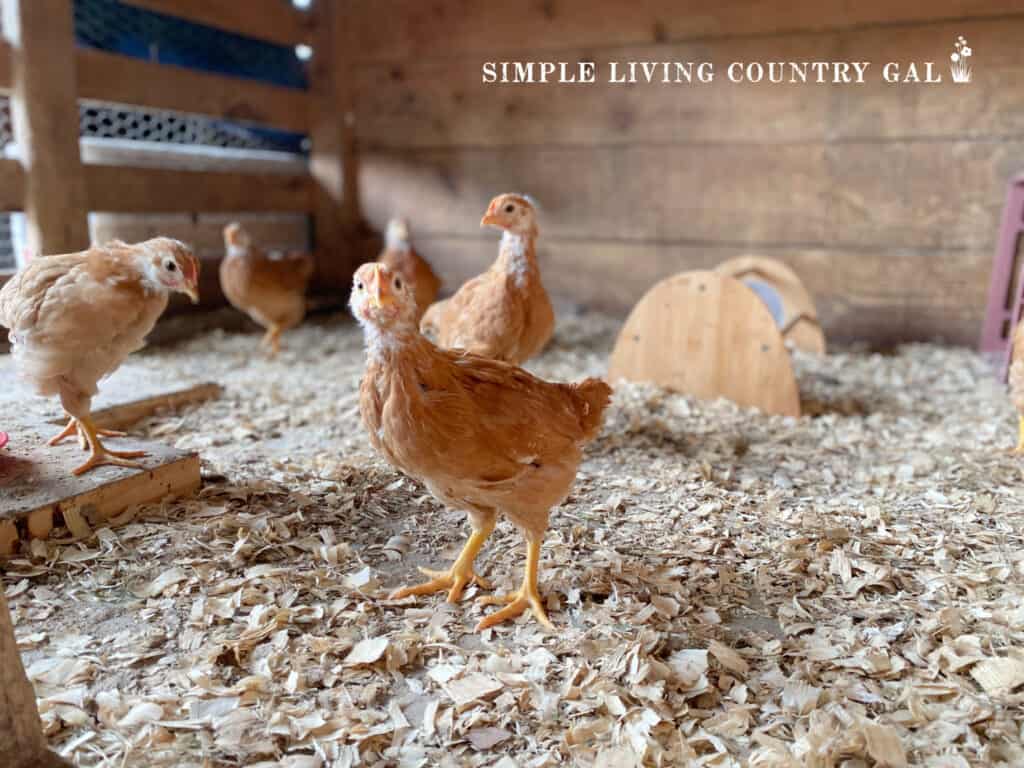
Next, you’ll need space for a henhouse or coop.
Inside the coop, you will want to be sure you have plenty of room for an automatic feeder, a waterer, nesting boxes, and roosting area.
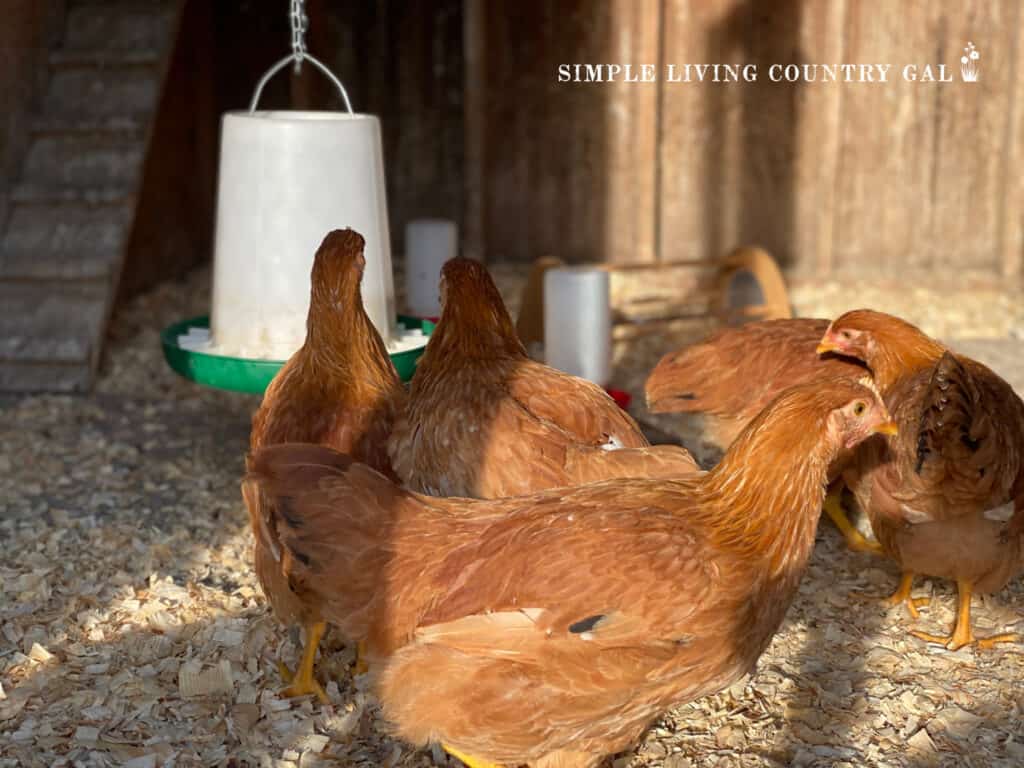
You will want to have at least one nesting box for every three hens. This will ensure there is enough room for everyone to lay their eggs.
When it comes to the coop you will want to have about 10 square feet for every grown chicken. Whether you build a small coop or a full-sized one, you will want to have an easy way to not only collect the eggs but clean things out as well.
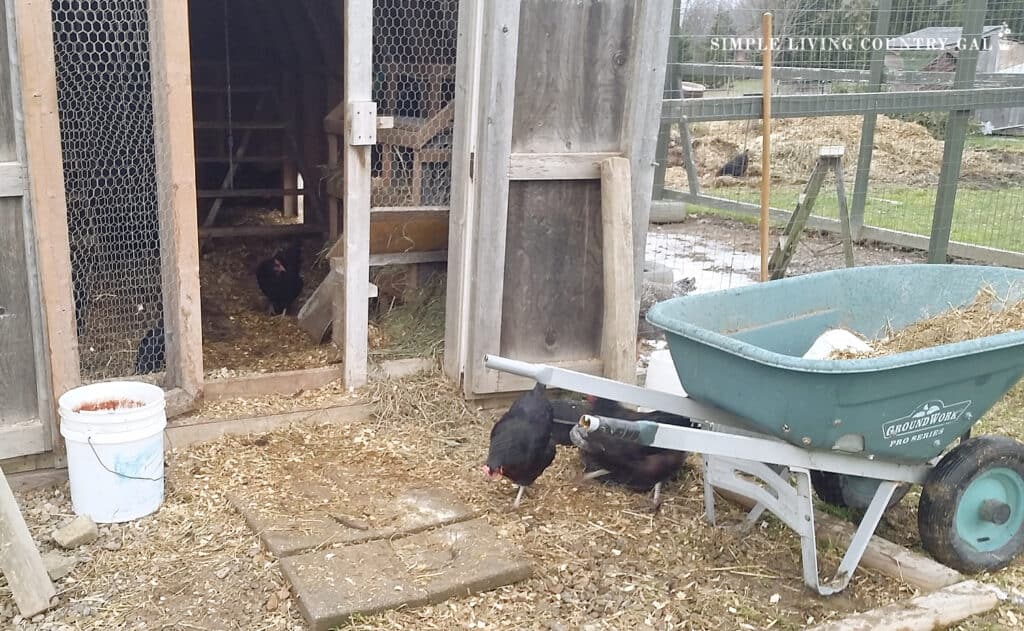
Finally, you’ll also want to make sure that your coop is sturdy enough to keep your chickens safe from predators.
In addition to factoring in the cost for the coop, the chickens, and possibly a permit, you’ll also need to account for feed and bedding. A bag of feed can run anywhere from $20 to $50 for a 50 lb. bag depending on where you buy it. And bedding will need to be replenished and replaced regularly.
Your coop and chickens will also need attention daily.
- Give fresh water daily.
- Add more feed to the chicken feeder.
- Spot clean manure to keep the coop smelling clean.
- Visually inspect your chickens looking for any issues.
Going on vacation may be a little tricky but can still be done. Keep a list of chores that you do each day that you can give to your temporary caregiver to refer to while you are away.
Who can watch your chickens while you’re away?
If you can, find a neighbor or friend that also has chickens. This way you know you have a person that understands what needs to be done to take care of your flock. Once you find someone, you can swap out care for each other as needed.
Lastly is how often your chickens will lay their eggs. In warmer months when the days are longer, hens will lay more frequently. This can be anywhere from daily to once every two days.
In the winter, that will slow down as the days get shorter and colder. I suggest collecting eggs twice a day until you find out when they tend to lay them. This will keep the eggs from getting broken or freezing if it’s winter.
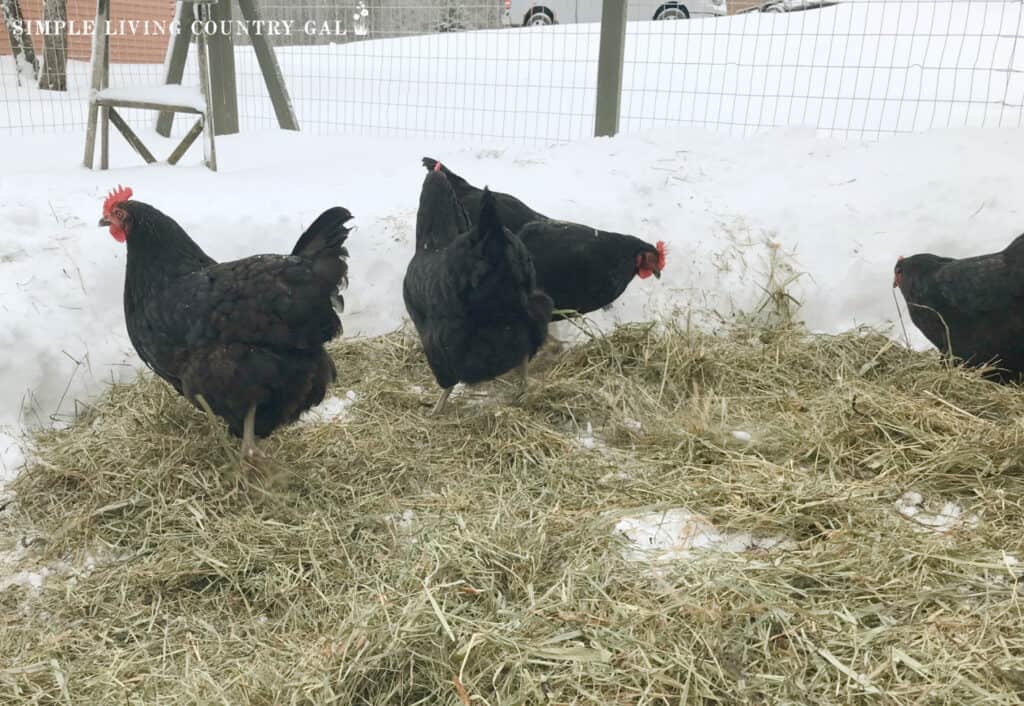
How Many Chickens Do I Need?
When considering how many chickens you need, it all depends on how much space you have and how many eggs you want to collect.
Chickens tend to be very sociable animals and don’t like being solitary. And happy chickens produce better eggs. For that reason, you shouldn’t consider having chickens unless you can house at least 3 to 6 birds.
An adult bird averages 2 eggs every 3 days so with 6 chickens you can expect to collect about two dozen or so eggs a week. If you want more eggs, you’ll obviously need more chickens which will require more space and more feed.
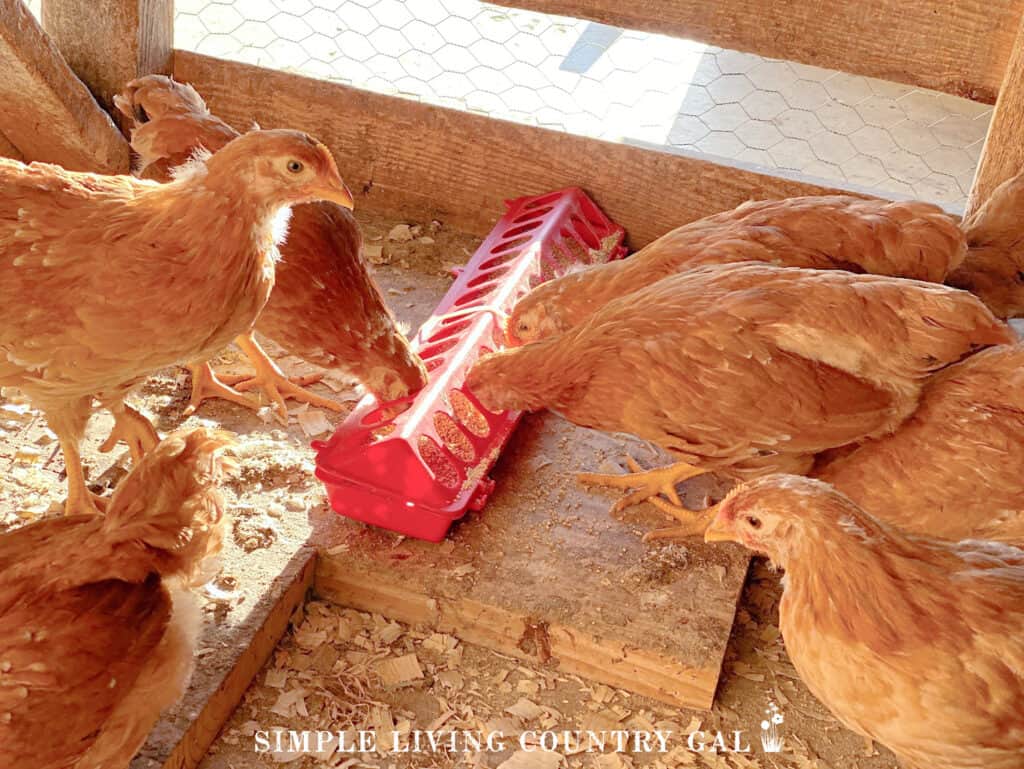
It’s important to note that chickens will not begin to lay eggs until about 5-6 months of age. After that, you can expect them to produce the most eggs in the first 2 years of their lives. After that their egg production slows down so you’ll want to be thinking about adding some younger chickens from time to time.
How Much Space Do Chickens Need?
On average, a medium-sized chicken requires at least 3 square feet of floor space inside the coop and about 8 to 10 square feet of space outdoors. That means with 6 chickens you’ll need a coop that has at least 18 square feet of floor space and about 60 square feet of space outside.
Ultimately, the more space you can provide the happier and healthier your chickens will be. Overcrowding can contribute to hen packing, feather picking, or even disease. While they like to be social, they also like their personal space. Providing a large backyard or a fairly large chicken run will keep them healthy.
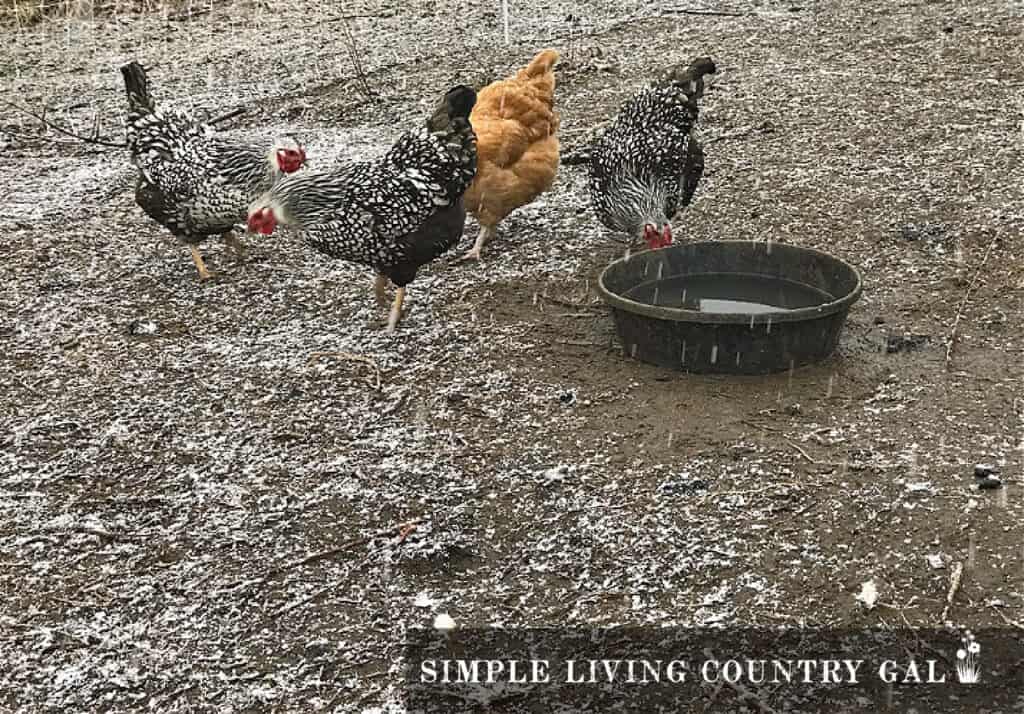
Free-ranging your chickens is certainly an option and has some benefits, but depending on where you live, you may want to consider a large fence or chicken run to keep the chickens in and predators out.
How Much Does It Cost to Keep Chickens?
Between the cost of the coop, the chickens, and the regular maintenance with food and bedding, there is certainly some expense involved.
If you’re building it yourself, you can expect a small chicken coop to cost at least $300 to build including the wood, hardware, and fencing. A larger coop will, of course, cost more and you can also purchase already built coops or assemble yourself kits online for significantly more.
If you have a shed or other building on your property now that this not being used you can convert it into a chicken coop for an affordable option.
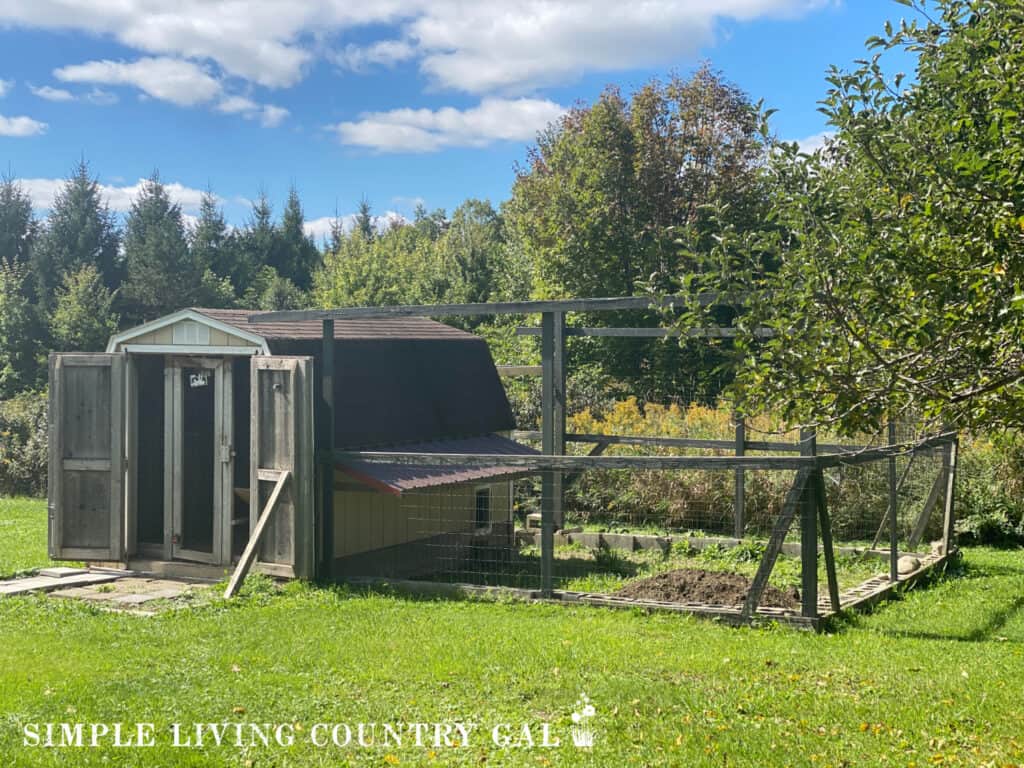
Depending on the size of the flock and the size of the coop, you can expect your start up costs to run between $500 and $1,000.
Your best option, if you’re not sure you’re committed to raising chickens, is to start small. You can always build a larger coop and add to your flock if you want more, but it’s harder to downsize if you decide it’s not for you.
How many chicks should I get?
Before you settle on a number you’ll need to consider how much space you have to dedicate to your flock, how many eggs you want each day, how much money you’re willing to invest, and how much time you’ll have to take care of them.
Raising chickens is a commitment no matter how many or how few you have.
• If you just want chickens for your family, a small coop and a few birds are all you’ll really need.
• If you want eggs that you can share with extended family and friends, you’ll need a little more space and a few more chickens.
• If you want to sell eggs, you’ll need a lot of space and a lot of chickens. Depending on your customer base, you’ll need enough space for about 50-100 chickens to start.
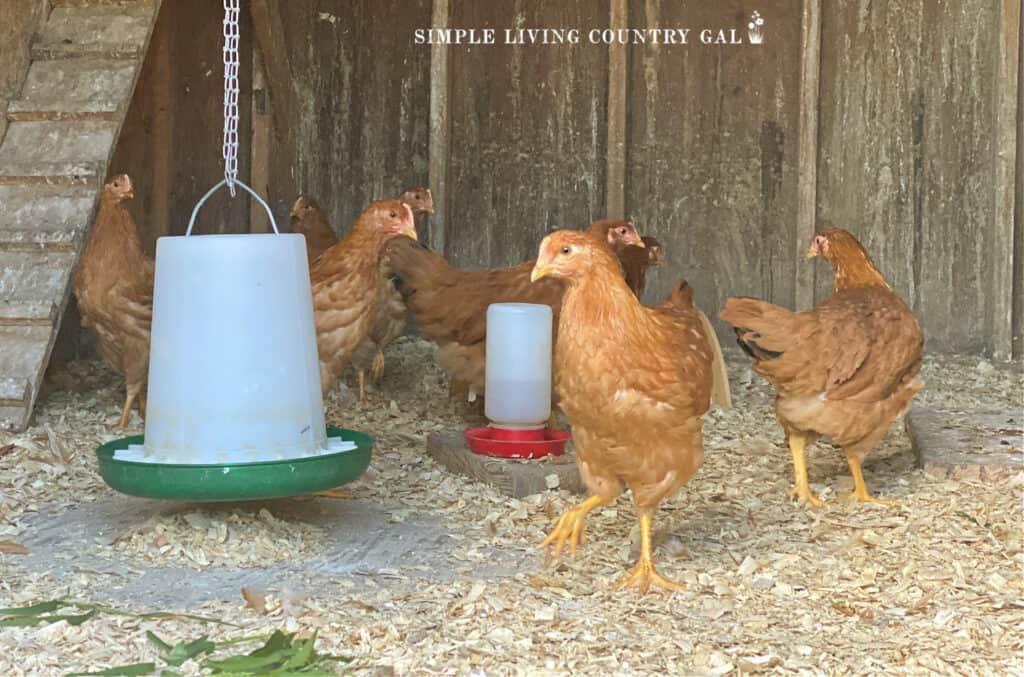
There’s not just one answer to how many chickens you’ll need. It depends entirely on your needs and the space you have to provide for them.
If you decide that raising chickens is the next step for you, you’ll certainly reap the benefits. Everything from delicious eggs to insect control in your garden. While it can be a little expensive to raise them, the benefits make it worthwhile.
